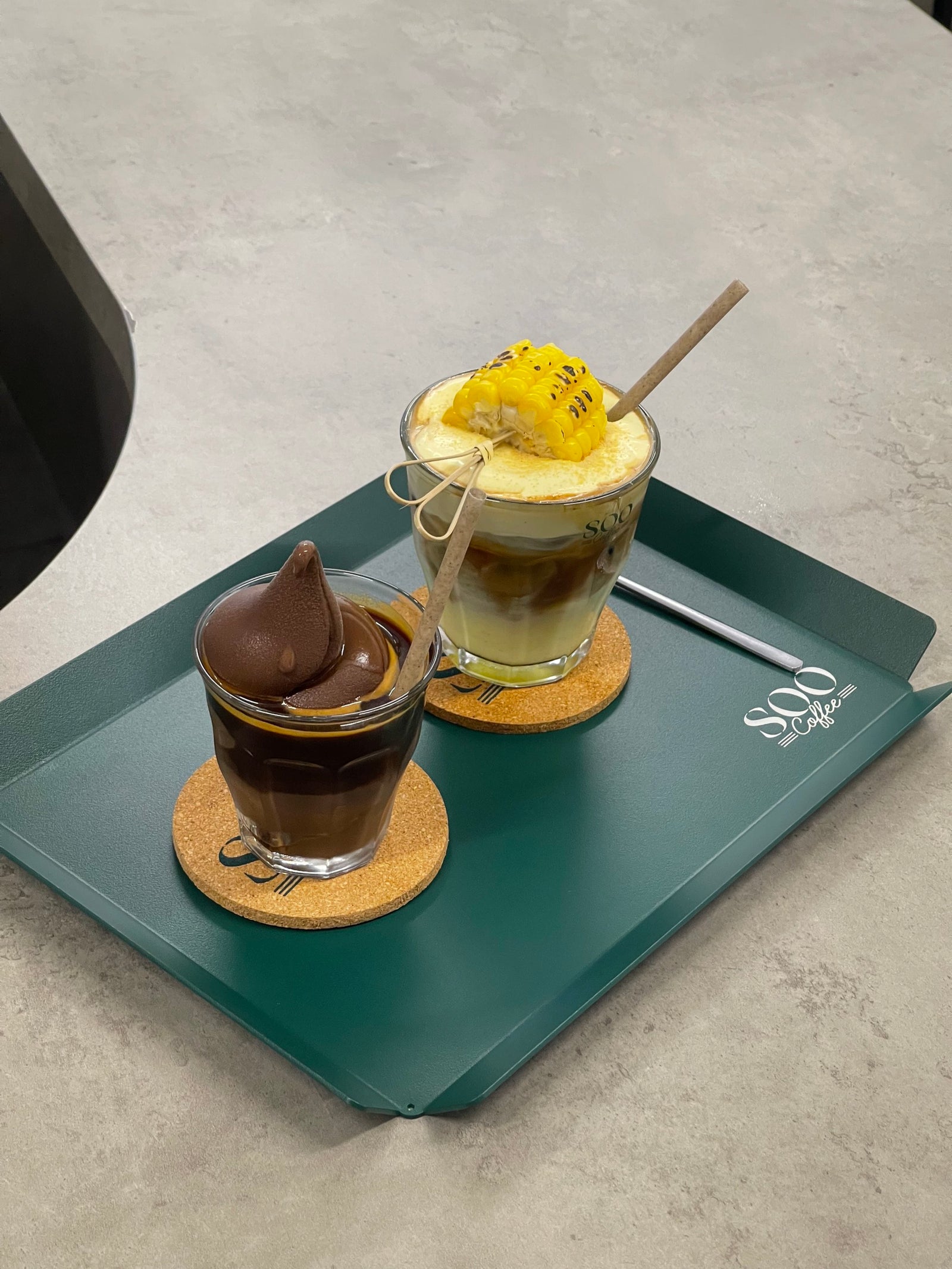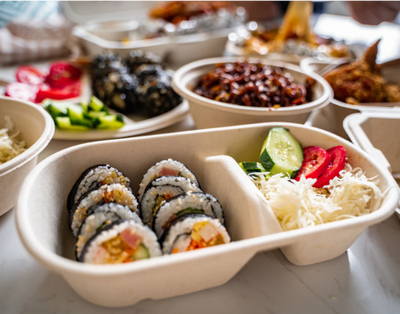Plastic-free cafés are growing in popularity as customers increasingly prioritize sustainability in their everyday choices. These establishments often market themselves as pioneers in combating the environmental crisis, eliminating single-use plastics, and embracing eco-friendly alternatives. But are plastic-free cafés as sustainable as they claim to be? Let’s dig deeper into the facts and uncover whether they truly deliver on their promise of environmental responsibility.
What Does It Mean to Be a Plastic-Free Café?
A plastic-free café eliminates or drastically reduces the use of single-use plastics, replacing them with biodegradable, compostable, or reusable alternatives. These cafés often avoid items such as plastic straws, cups, lids, stirrers, and cutlery, opting for options like sugarcane utensils, glass jars, or compostable sugarcane straws.
For example, according to Plastic Oceans International, a traditional café can discard up to 100,000 single-use items annually, including cups, lids, and stirrers. Plastic-free cafés aim to cut down this alarming statistic by providing innovative alternatives.
Popular brands and small businesses alike have adopted plastic-free principles. Chains like Starbucks introduced reusable cup schemes, while independent cafés use compostable packaging or encourage customers to bring their own reusable containers.
Environmental Benefits of Plastic-Free Cafés
Plastic-free cafés play a crucial role in mitigating environmental harm by reducing waste and promoting more sustainable alternatives. By eliminating single-use plastics, these cafés contribute to cleaner oceans, less waste, and a shift towards greener consumer habits. Let’s break down the specific environmental benefits of transitioning to a plastic-free café model.
Reducing Plastic Pollution
Every year, 8 million tons of plastic waste enters the ocean, contributing to pollution that threatens marine life and ecosystems. Single-use plastic cups and straws from cafés are a significant contributor to this waste. Plastic-free cafés help mitigate this by switching to compostable or reusable alternatives, preventing thousands of items from ending up in landfills or oceans.
Changing Consumer Habits

EQUO's sugarcane straws
Plastic-free cafés often serve as role models, encouraging customers to rethink their consumption habits. Studies show that over 67% of consumers are willing to pay more for sustainable products, and cafés adopting eco-friendly practices inspire similar behavior in their patrons.
Supporting Circular Economies
By using compostable or biodegradable products, plastic-free cafés contribute to a circular economy, where resources are reused and recycled. For instance, compostable sugarcane containers can break down in less than a year, turning waste into nutrient-rich soil.
Challenges to True Sustainability
Despite their efforts, plastic-free cafés face several hurdles in their journey toward true sustainability.
Hidden Carbon Footprints of Alternatives
Many eco-friendly alternatives, such as bamboo straws or corn-based cutlery, are imported from far-off regions. Transporting these items contributes to greenhouse gas emissions. For instance, shipping bamboo from Asia to Europe can result in a carbon footprint exceeding 10 kilograms of CO2 per kilogram of product.
Mismanagement of Compostable Products
Not all compostable materials are created equal. Many require industrial composting facilities to degrade fully, which are not readily available in many parts of the world. Without proper disposal systems, these products may still end up in landfills, releasing methane as they decompose.
Reusables vs. Compostables: The Debate
While reusable cups and utensils are an ideal solution, they come with their own challenges. Cleaning them consumes water and energy, especially in large volumes. On the other hand, compostable items offer convenience but may fall short if not disposed of properly.

How Much Waste Do Cafés Produce Daily?
A traditional café serving 300 customers daily might use:
- 300 single-use cups and lids
- 150 plastic straws
- 300 stirrers
- 100 plastic takeaway containers
This adds up to 1,050 items discarded per day, or over 380,000 items annually per location. While plastic-free cafés significantly reduce this number, addressing other operational impacts, such as sourcing and waste management, is critical for full sustainability.
How Can Plastic-Free Cafés Become Truly Sustainable?
Plastic-free cafés can go beyond reducing single-use plastics to address other aspects of sustainability. Here’s how:
Source Locally
Using locally sourced materials like sugarcane or palm leaves for packaging reduces transportation emissions and supports regional economies.
Embrace Reusables
Implement systems for reusable containers and utensils. For instance, offer discounts to customers who bring their own cups or plates.
Invest in Composting
Collaborate with local governments and private companies to establish composting facilities or partner with existing ones to ensure biodegradable products are disposed of properly.
Educate Consumers
Inform customers about how to dispose of compostable items correctly. For example, labeling compostable straws as "not for recycling" can help prevent contamination in recycling bins.
Best Practices from Around the World
- The Zero Waste Café Movement (UK): Many cafés have adopted "zero waste" policies, using bulk ingredients, encouraging reusables, and composting all organic waste.
- EQUO’s Plant-Based Solutions: EQUO offers truly compostable, plant-based alternatives like sugarcane straws that naturally degrade within a year without leaving harmful microplastics.
- Cafés in Bali: Cafés in Bali have embraced banana leaves for packaging, cutting down their reliance on imported eco materials.
Conclusion
Plastic-free cafés are an essential step toward combating plastic pollution, but their sustainability cannot be taken at face value. From addressing the hidden carbon footprints of alternatives to ensuring proper disposal of compostable products, these cafés must adopt a holistic approach to truly minimize their environmental impact.
As consumers, we play a pivotal role in supporting these initiatives. The next time you visit a plastic-free café, look beyond their eco-friendly branding and assess their practices. Sustainability is not just about eliminating plastic, it’s about making every choice count.


